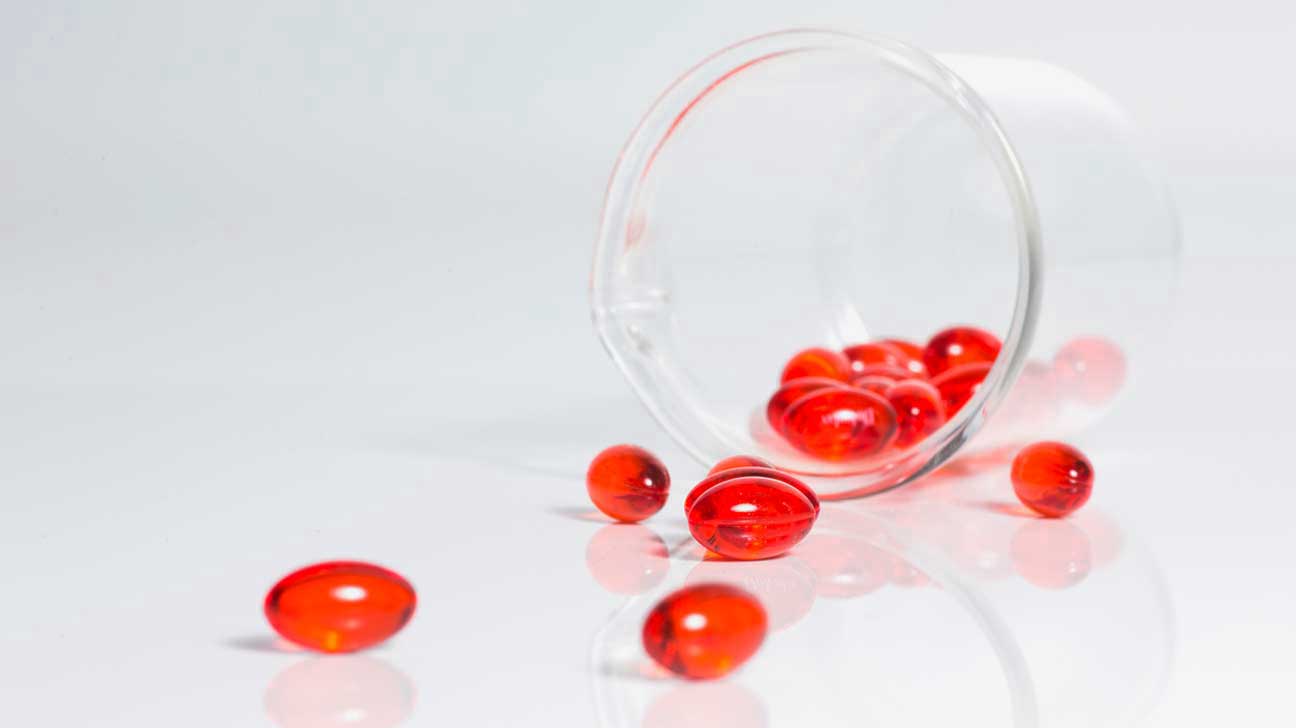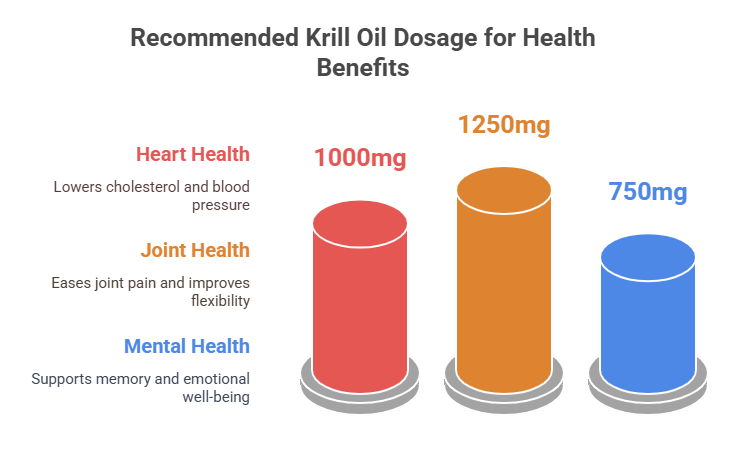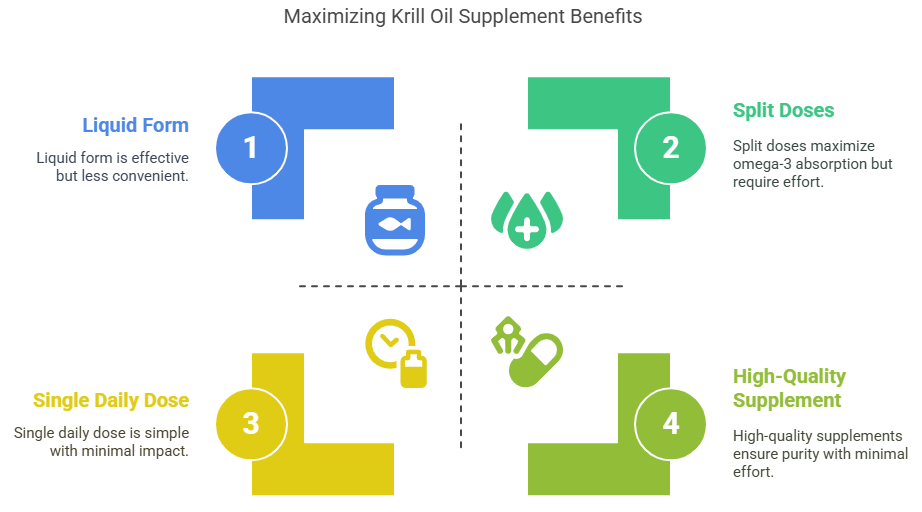Many people turn to krill oil for its omega-3s, known for supporting heart health, reducing joint pain, and improving brain function. However, with so many different products on the market and varying dosage recommendations, it’s easy to get confused about how much to take.
Taking too little might mean you don’t experience the full benefits, while taking too much can lead to side effects like digestive issues or thinning of the blood. So, how do you find the right balance?
In this guide, we’ll simplify the recommended krill oil dosages for various health goals. Whether you’re looking to support your heart, joints, or brain, we’ll walk you through the safe dosage ranges and tips to make sure you’re taking krill oil effectively.
What is Krill Oil?
Krill oil is a supplement made from tiny crustaceans called krill, which are rich in omega-3 fatty acids—specifically EPA and DHA. These omega-3s are essential for heart health, brain function, and reducing inflammation. What makes krill oil stand out from other omega-3 sources, like fish oil, is its superior absorption. The omega-3s in krill oil are attached to phospholipids, making them easier for the body to use.
In addition to omega-3s, krill oil contains astaxanthin, a powerful antioxidant that helps protect your cells from damage and keeps the oil fresh longer.
If you’re looking to improve your overall health or manage specific issues like joint pain or heart health, krill oil might just be the supplement you’re seeking.
Why Dosage Matters with Krill Oil
The right dosage of krill oil is key to unlocking its full benefits without unwanted side effects. Too little might not give you the heart, joint, or brain support you’re looking for, while too much can lead to digestive issues or increase the risk of bleeding, especially if you’re on medication.
Think of it like taking the right amount of medicine—just the right dose helps your body heal, but more isn’t always better. For general health, a daily dose of 250-500 mg of omega-3s is ideal. If you’re aiming to support your heart, joints, or mental clarity, you might need a bit more—around 1,000 mg.
For Heart Health
You may need a little more if your goal is to keep your heart healthy. A dose of around 1,000 mg per day can help lower cholesterol levels, reduce blood pressure, and improve circulation. This is very helpful if you want to keep your heart healthy and your arteries clear.
For Joint Health
For those struggling with stiff or achy joints, especially due to arthritis, krill oil’s anti-inflammatory benefits can really help. A dose of about 1,000-1,500 mg daily has been shown to ease joint pain and improve flexibility. This can make a big difference if you’re tired of feeling stiff and want to stay active.
For Mental Health
To boost brain power and lift your mood, aim for 500-1,000 mg a day. Omega-3s are known to support memory, focus, and even emotional well-being. If you’ve been feeling foggy or stressed, this dose can help clear your mind and keep you feeling balanced.
Always check with your doctor before starting on krill oil, especially if you’re on medication. The right dosage can help you get the benefits you’re looking for—without any unwanted side effects.
Maximum Safe Dosage and Risks of Excess Krill Oil Intake
While krill oil offers many health benefits, it’s important to stay within the recommended dosage to avoid potential risks. The maximum safe dose is typically around 3,000 mg per day. Exceeding this can lead to side effects like digestive discomfort and an increased risk of bleeding, especially if you’re on blood-thinning medications.
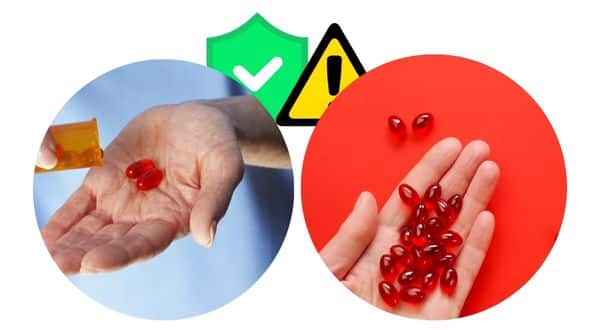
Risks of Excess Krill Oil Intake
Taking too much krill oil can be harmful. Overdoing it can cause digestive issues like nausea, bloating, and upset stomach. Additionally, because krill oil has a natural blood-thinning effect, high doses may increase the risk of bruising or prolonged bleeding. This is especially important if you are on medications that affect blood clotting.
Think of krill oil like a helpful tool; when used correctly, it can do wonders for your health. But just like anything, moderation is key. Sticking to 500–1,000 mg daily is typically sufficient for heart, joint, and brain health.
If you’re considering higher doses, always consult your doctor to ensure it’s right for your individual needs.
Factors Affecting Krill Oil Dosage
The right dosage of krill oil can vary depending on several factors. Here’s a breakdown of what to consider when determining your ideal amount:
Body Weight
Your body weight plays a role in how much krill oil you may need. Just like a larger plant requires more water, individuals with a higher body weight might need a slightly larger dose to experience the same benefits.
Health Condition
If you’re managing a specific health concern like heart issues or joint pain, you may need a higher dose of krill oil to see noticeable improvements. Conditions like inflammation or cognitive decline can benefit from a higher omega-3 intake.
Diet
If you’re already consuming omega-3-rich foods, like fatty fish or flax-seeds, you might not need as much krill oil. Your diet can help determine how much additional omega-3s you should be getting from supplements.
Medications
If you’re taking medications, especially blood thinners, it’s important to consult your doctor before adjusting your krill oil dosage. Krill oil can interact with certain medications, and finding the right balance is crucial for your safety.
By understanding these factors, you can personalize your krill oil dosage for maximum effectiveness.
Tips for Taking Krill Oil for Best Results
Getting the most out of your krill oil supplement doesn’t just depend on the dosage; timing, form, and quality also matter. Here’s a quick guide to help you maximize its benefits:
Timing: With Food or on an Empty Stomach?
For best absorption and to avoid any mild stomach discomfort, it’s a good idea to take krill oil with a meal. Omega-3s absorb more efficiently when paired with food, particularly meals that contain some healthy fats.
Frequency: Once Daily or Split Doses?
Most people do well with a single daily dose. However, if you’re taking a higher amount for specific health reasons, consider splitting it into two doses (morning and evening). This approach can make it gentler on your digestive system and ensure a steady supply of omega-3s throughout the day.
Form: Capsules vs. Liquid
Krill oil is available in both capsules and liquid form, with capsules being the most popular choice for ease and taste. Either form is effective, but capsules often have the added benefit of preventing the “fishy” aftertaste some experience with liquid. Both forms provide good bio-availability, meaning your body can absorb the nutrients efficiently.
Choosing a High-Quality Supplement
Look for krill oil supplements that are tested for purity and potency to avoid contaminants. High-quality krill oil will usually be certified by third-party testing, ensuring it’s free from heavy metals and offers the potency advertised. Also, check the label for the levels of EPA and DHA to make sure you’re getting enough of these beneficial omega-3s.
Following these tips can help you get the full range of krill oil’s health benefits while making your supplementation routine simple and effective.
Side Effects and Safety Precautions
While krill oil offers many health benefits, it’s important to be aware of potential side effects and who might need to avoid it. Here’s what you should know:
Possible Side Effects
Most people tolerate krill oil well, but some might experience mild side effects, such as:
- Stomach discomfort: This can include nausea, bloating, or an upset stomach, especially if taken on an empty stomach.
- Fishy aftertaste or burps: Though less common than with fish oil, some people may notice a slight aftertaste.
- Skin reactions: In rare cases, sensitive individuals may experience mild itching or rashes.
These side effects are usually mild and can often be minimized by taking krill oil with food and starting with a lower dose.
Who Should Avoid Krill Oil?
Certain people should be cautious or avoid krill oil altogether:
- Those with shellfish allergies: Since krill are crustaceans, people with shellfish allergies should steer clear, as it can trigger allergic reactions.
- Individuals on blood-thinning medications: Krill oil can thin the blood, which might increase the risk of bleeding, especially if you’re already on blood-thinners like warfarin.
- Pregnant or breastfeeding women: While krill oil is generally safe, it’s best to consult with a healthcare provider before taking any supplements during pregnancy or breastfeeding.
- People scheduled for surgery: It’s recommended to stop taking krill oil at least two weeks before any surgery to reduce the risk of excessive bleeding.
If you’re considering adding krill oil to your regimen, especially if you have pre-existing health conditions or are on medications, always check with your doctor first. That way, you can enjoy the benefits of krill oil safely and confidently.
Benefits of Consistent Use of Recommended Dosage
When taken regularly in the right amount, krill oil can do a lot of great things for your health. By sticking to the recommended amount, you ensure your body receives the full effect of its powerful omega-3s and antioxidants. Here’s how it can benefit your health:
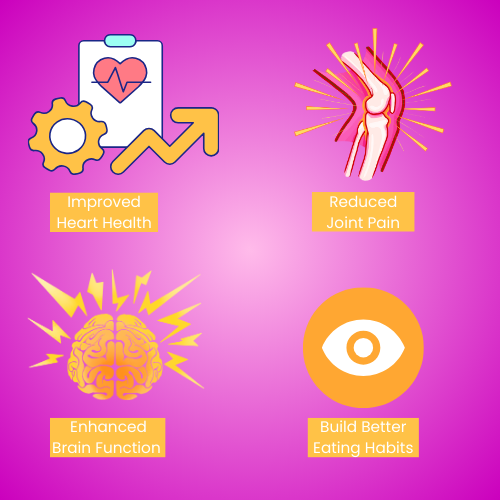
Improved Heart Health
Studies have shown that regular use of krill oil can help reduce cholesterol levels, lower blood pressure, and decrease triglycerides—key factors in preventing heart disease. For example, research found that taking 1,000 mg of krill oil daily led to a significant reduction in LDL (bad) cholesterol by up to 34% within three months.
Reduced Joint Pain and Inflammation
If you struggle with achy joints, sticking to a daily dose of krill oil can help reduce inflammation. In one study, participants with arthritis who took 300 mg of krill oil per day reported up to 29% less pain and stiffness after just one month. By consistently taking it, you can enjoy more comfortable movement and increased flexibility.
Enhanced Brain Function and Mood
Omega-3 fatty acids in krill oil are essential for brain health. Regular use can improve focus, memory, and even mood. In one testimonial, a user shared, “After taking krill oil daily, I noticed my concentration improved, and I felt more mentally clear.” For many, a consistent dose of around 500 mg per day helps reduce stress and boosts mental sharpness.
Better Skin and Eye Health
Krill oil’s antioxidant, astaxanthin, helps protect your skin from damage and supports eye health. Sticking to the recommended dosage can result in healthier, more radiant skin and sharper vision over time. Users often report fewer dry skin issues and improved eye comfort after regular use.
By following the recommended dosages, you not only avoid unwanted side effects but also unlock the full potential of krill oil’s benefits. The key is consistency—making it a part of your daily routine can lead to noticeable improvements in your overall health.
Conclusion: Make the Best Choice for Your Health
Incorporating krill oil into your daily routine is a simple yet powerful way to support your overall health. By taking the right dosage consistently, you can experience a range of benefits, from enhanced heart health to improved joint flexibility and clearer thinking. The key is balance—too little may not provide the desired effects, while too much could lead to side effects.
For most individuals, starting with 250-500 mg daily is ideal for general health. If you’re targeting specific concerns like heart or joint health, slightly higher doses may be more effective. However, always consult your doctor to ensure krill oil fits well with your health needs, especially if you’re on medication or managing health conditions.
Krill oil is more than just a supplement; it’s a step toward a healthier, more vibrant you. Whether you’re new to supplements or looking for a natural way to support your body’s needs, krill oil can help you take charge of your well-being. Start your journey today and see how this powerful nutrient can make a difference in your life.
FAQs
How much krill oil should I take daily?
The ideal dosage depends on your health goals. For general wellness, most adults benefit from 250-500 mg of combined EPA and DHA per day. If you’re targeting heart health, joint relief, or brain support, you might need 1,000 mg or more. Always check with your doctor to find the right dose for your specific needs.
Can I take too much krill oil?
Yes, it’s possible to overdo it. Taking too much krill oil can lead to digestive discomfort, such as nausea or an upset stomach, and may thin your blood, which could be risky if you’re on blood-thinning medications. To stay safe, stick to the recommended dosage and consult your healthcare provider before increasing your intake.
How soon will I notice the benefits?
While it varies from person to person, many people start noticing improvements in joint comfort, mental clarity, or overall energy levels within 2 to 4 weeks of consistent use. For heart health and cholesterol support, benefits may take a bit longer—around 6 to 12 weeks. Patience and consistency are key!


